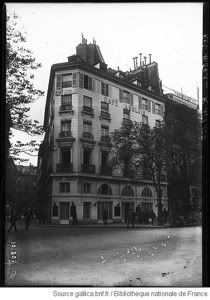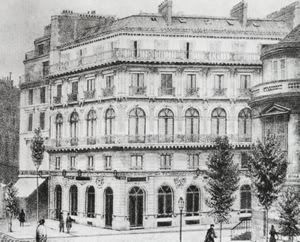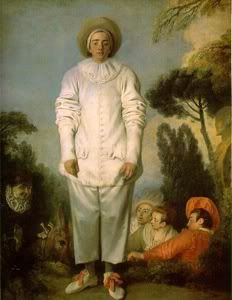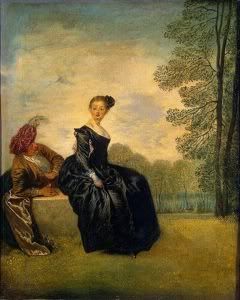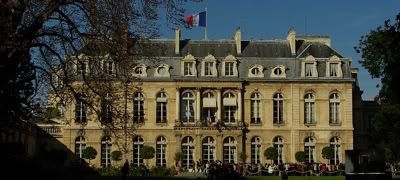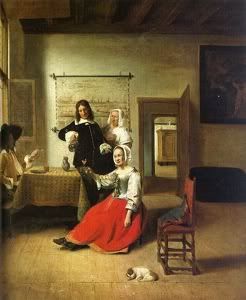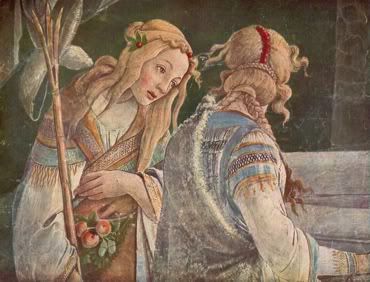A closer look at Odette. She does not understand Swann—he is so far superior to her intellectually that she can't see the forest for the trees and instead believes him "inferior, intellectually, to what she had supposed." At the same time "she was more impressed by his indifference to money, by his kindness to everyone, by his courtesy and tact," (p.342) which makes sense, if she is basically a courtesan.
Odette apparently also has her own sense of fashion which deviates from the classic definition of the word as given by Swann, saying that
"it emanates from a comparatively small number of individuals, who project it to a considerable distance—more and more faintly the further one is from their intimate centre—within the circle of their friends and the friends of their friends, whose names form a sort of tabulated index." (p.343)Odette longs to be in fashion, but her fashion plight may be similar to her social plight, when she refuses Swann's invitations to take her into society, and that of the Verdurins, who declaim all the most popular salons to be boring, perhaps as a means of protecting themselves from the disappointment of social shunning.
She doesn't find Swann to be as in fashion as she would like. She is displeased with his choice of abode, as she believes the Quai d'Orleans to be "unworthy of him." Interestingly, the Quai d'Orleans was (and is) an established part of town, apparently called home by many artists and writers during the late 19th century. Odette's real beef with the place seems to be its age. She has more respect for the "sham-antique" and would not have him living "among a lot of broken-down chairs and threadbare carpets." She does greatly respect those who enjoyed "picking up antiques, who liked poetry, despised sordid calculations of profit and loss, and nourished ideals of honour and love," but believes "there was no need actually to have those tastes, as long as one proclaimed them." (p.247) So again we see Odette as duplicitous vulgar: not only does she fail to see established value, but again her speech is peppered with English phrases, like "rummaging," "bric-a-brac," and especially "smart," which implies she has traded French tradition for the vulgarity of contemporary English or even American.
Swann is in love with being in love, and he will do anything to keep that feeling alive, and to keep Odette in love with him, right down to lowering himself.
"But, now that he was in love with Odette, all this was changed; to share in her sympathies, to strive to be one with her in spirit, was a task so attractive that he tried to find enjoyment in the things that she liked, and did find a pleasure, not only in imitating her habits but in adopting her opinions, which was all the deeper because, as those habits and opinions had no roots in his own intelligence, they reminded him only of his love," (p.349)He is seriously love sick, and Proust writes his plight very naturally and deeply. The mental journey makes me think of a D. H. Lawrence character or two.
But oh the social commentary. Odette is not really a likeable person. She is a twit at best, short of intelligence and identifiable values would seem a satire of the lower classes doing their best to move their way up—the proverbial social climber—but then Swann assigns no more value than Odette to the social establishment, and he is far more likeable and no less of a social climber, having once been more middle class along with M's family and now moving in the upper most social circles.
"the objects we admire have no absolute value in themselves, that the whole thing is a matter of period and class, is no more than a series of fashions, the most vulgar of which are worth just as much as those which are regarded as the most refined." (of Swann's opinion, p.350)The late 19th century was a time of social mobility, and these are Proust's sketches of the times, but I'd like to read more about his position on the situation. There are a lot of cool references in this section that I didn't research this time. Some of that information has been informative, and all of it has been fun, but I do want to finish this book during my lifetime.

